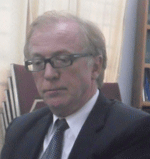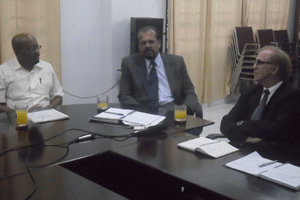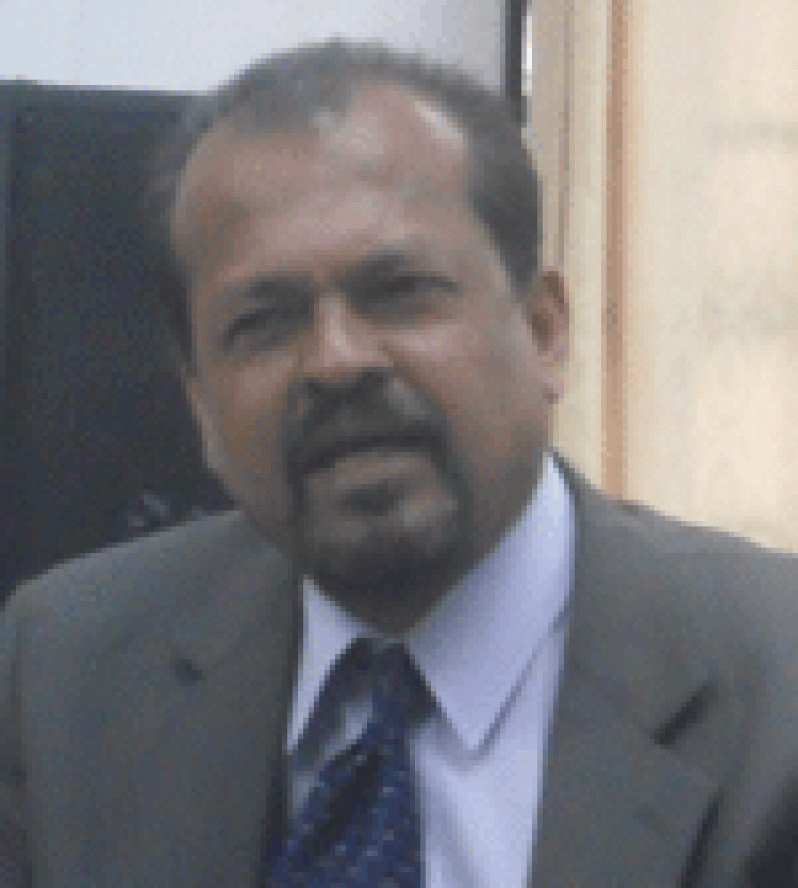–RDCs, NDCs, ADCs to be actively involved
GUYANA can very well tap into a Canada-funded Caribbean Local Development programme (CARILED) worth Cdn$23.2 million and headed by the Federation of Canadian Municipalities.  The programme, which will see active involvement of Regional Democratic Councils, Neighbourhood Democratic Councils, and Amerindian Village Councils, will be spearheaded by the Local Government Ministry. Funding for the programme falls under the purview of the Canadian International Development Agency (CIDA).
The programme, which will see active involvement of Regional Democratic Councils, Neighbourhood Democratic Councils, and Amerindian Village Councils, will be spearheaded by the Local Government Ministry. Funding for the programme falls under the purview of the Canadian International Development Agency (CIDA).
This announcement was made by Dr. Naresh Singh, head of the Caribbean Local Economic Development Programme (CARILED), at a press conference held at the Local Government Ministry last Monday. Dr. Singh said that CARILED has heard concerns that Regional Democratic Councils and Neighbourhood Democratic Councils lack capacity to undertake such programmes, but he made it clear CARILED will be providing tools and training to equip the bodies to develop the capacity to manage the programmes.
Also at the press conference were Norman Whittaker, Minister within the Local Government Ministry; Collin Croal, Permanent Secretary of the Local Government Ministry; David Devine, Canadian High Commissioner to Guyana; Sebastien Hamel, Director of the Federation of Canadian Municipalities International; and Lucy Slack, Deputy Secretary General of the Caribbean Local Government Fund.
This programme targets all Caribbean countries except Haiti. Dr. Singh explained that the programme runs for six years, and will see six countries benefiting in the first phase, which will run for three years. During the second phase, the experiences learnt from working with the first six countries will be shared with the other countries.
Dr. Singh explained that Haiti is exempted from this project because that country is supposedly the single largest recipient of direct aid from  Canada. He also explained that Canada has been offering support to Haiti in almost every area, and this is because of Haiti’s present state.
Canada. He also explained that Canada has been offering support to Haiti in almost every area, and this is because of Haiti’s present state.
The team is presently in Guyana to discuss the possible areas to which Guyana will channel the funding, should this country be among the six countries that are expected to benefit first. According to Dr. Singh, the group wanted to see the support and interest that Guyana was willing to place on the project.
The CARILED programme’s main aim in Caribbean countries is to focus on enhancing and stimulating local economic and other developments, and supporting ongoing programmes aimed at generating revenue in small communities. Dr. Singh also said that one of the things the grouping has noticed is that Guyana, like many other Caribbean countries, has a high food import bill, and, according to him, many of the imported items are things that are available in Guyana.
He commented that many of the items that are imported can be produced right here, if only the right environment were available.
The funding agency also met with His Excellency, President Donald Ramotar; Finance Minister, Dr. Ashni Singh; Prime Minister, Samuel Hinds, and representatives of the private sector.
Meanwhile, the grouping was asked what the body, and by extension Canada, hopes to gain in return for working with Guyana. High Commissioner David Devine explained that his country is one with resources and a history of assisting other countries needing a boost. He went on to say that Canada has close to two hundred thousand Guyanese living in Toronto, and according to him the relationship between Guyana and Canada goes beyond the commercial front.
He said it is hoped that the investments in Guyana could one day lead to the exchange of skills, and even trade, which will eventually see both countries benefiting significantly. The agency is expected to start actual activities later this year.
Dr. Singh said that while their presence in Guyana now is to get the political interest in the programme, the technical mission of conducting studies will commence in March of this year. He added that that phase should be finished by mid-April, and only when all the data has been collected will there be an announcement of the eligible countries to benefit in the first phase, and what interventions will be made. That is expected to be done by June the latest.
The Caribbean Community Secretariat (CARICOM), Organization of American States, Caribbean Association of Local Government Authorities, and the Caribbean Forum of Local Government Ministers are expected to be consulted on the programme. According to the funding agency, all protocols will be followed in the selection and issuance of the aid to beneficiaries.
In his remarks, Minister Norman Whittaker explained that in determining which NDCS and RDCS will benefit first largely depends on the needs of the people in those areas, and the wishes of those people, and not just the ministry and its technical staff. He added that, over the past two decades, CIDA has been working with the Guyana Government on various fronts, especially infrastructure and development.
Guyana eyes Canada-funded developmental programme
SHARE THIS ARTICLE :
Facebook
Twitter
WhatsApp


.jpg)











